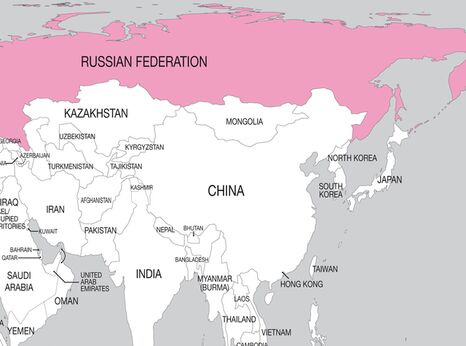Russian Federation: Victim Of Videod Torture Is Still Missing

Telegram channel (chat) 1ADAT was set up in early March 2020. The number of its subscribers rapidly grew and has now reached over 18,000 people. It publishes information about human rights violations, including enforced disappearances, arbitrary detentions and torture in Chechnya, as well as harsh criticism of and satirical sketches about Chechen officials. The channel has several administrators who remain anonymous.
According to the independent Russian Novaya Gazeta newspaper, the Chechen authorities have been attempting to identify the channel’s creators, administrators and contributing authors since May 2020. Due to the security measures taken by the channel administrators, the authorities’ attempts were unsuccessful until one of the channel’s moderators, 19-year-old Salman Tepsurkaev compromised his anonymity by disclosing his personal details to a likely undercover law enforcement official. On 6 September, he was abducted from Gelendzhik, a city in Krasnodar region in southern Russia. According to Russian NGO Committee Against Torture (CAT) who took up this case, the eyewitnesses claimed that the abductors showed them IDs of the officers of the Ministry of the Interior. On 7 September 2020, Salman Tepsurkayev’s family members established the geolocation of his mobile phone. It was switched on in the Chechen capital Grozny, at the location where the Police Patrol Regiment named after Akhmat Kadyrov is stationed. On numerous occasions, the regiment has been alleged to have been involved in human rights violations, including enforced disappearances, torture and extrajudicial executions. In particular, in 2017-2021, Russian independent Novaya Gazeta newspaper published investigations into the regiment’s involvement in mass extrajudicial execution of 27 Chechen men in January 2017.
In the evening of 7 September, a video appeared on social media where Salman Tepsurkaev was seen being sexually violated, “in punishment” for cooperating with 1ADAT. At least three more videos featuring Salman Tepsurkaev were published on Instagram in the next few days. Since then, there has been no information of Salman Tepsurkaev’s fate and whereabouts. On 14 September, human rights defenders from CAT submitted a report of a crime to the Krasnodar Region and Chechen Republic Investigation Committees. They also conducted their own investigation. In particular, they found CCTV recordings with clear images of Salman Tepsurkaev’s abductors, which could have been useful for their identification; established the number plates of the cars used by the abductors and ascertained that one of the cars belonged to a Chechen police officer. They also found out that not long before the abduction a police officer from Grozny police station No 1 had called Salman Tepsurkaev. This information was passed on to the investigators. However, no meaningful steps followed and a criminal investigation into Salman Tepsurkaev’s abduction was opened only on 27 November 2020 by the Gelendzhik Investigative Department. On 28 May 2021, the case file materials were passed on to the Chechen Republic for further investigation on the grounds that “majority of witnesses and people who might have been involved in this crime are on the territory of the Chechen Republic”.
Under the leadership of Kremlin-appointed Ramzan Kadyrov, Chechnya is the place where numerous human rights violations are being committed, with virtually total impunity for their perpetrators, and free speech has been brutally suppressed for years. Amnesty International and other human rights organizations have documented multiple instances when critics of the regime, including human rights defenders, journalists and bloggers, have been prosecuted and imprisoned under fabricated criminal charges, or abducted and killed. Members of the general public who dare to criticise Ramzan Kadyrov, members of his administration, his relatives or associates, or complain about local problems such as the closure of a hospital, or even ask for help in ways which reflect negatively on Chechnya (for instance, ask for help to provide for a large family), are often being forced to humiliate themselves in front of a camera and publicly “apologise” for their actions, which is recorded and then broadcast on the local television or via social media. This practice has been widely used since 2015.
Ramzan Kadyrov’s critics are not safe abroad either, and numerous suspicious attacks and assassinations which appear to have been instigated from Chechnya, have been reported. For instance, on 13 January 2009, former Ramzan Kadyrov’s bodyguard and later public critic, Umar Israilov, whose testimony directly implicated the Chechen leader in torture and other human rights violations, was shot and killed in Vienna, Austria. On 1 February 2020, the body of Chechen blogger Imran Aliev (alias “Mansur the Old”), was found in Lille, France. On 4 July 2020, blogger Mamikhan Umarov was shot dead in the suburbs of Vienna. Both bloggers were ardent critics of Kadyrov and his regime. On 26 February 2020, another popular blogger and critic of Kadyrov’s regime, Tumso Abdurakhmanov who lives in exile in one of the European countries, was attacked with a hammer by an intruder while sleeping in his flat. He managed to overpower his attacker and survived.